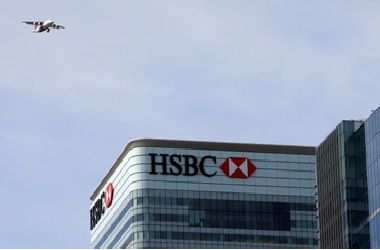HSBC plans to expand its investment bank in the US as its presence there is increasingly important for Asian clients, part of its attempt to increase revenues by about 5% annually and grab market share.
Executives from HSBC’s global banking and markets (GBM) business told analysts on Thursday they expect to increase revenues faster than rivals to push GBM’s return on risk-weighted assets to 2.5% or more.
That reiterated targets set by HSBC in 2015. Last year GBM’s RoRWA fell short, coming in at 1.8%.
The improvement will be achieved by the revenue rise, a further US$20bn reduction in risk-weighted assets, and by keeping cost growth below revenue growth, according to Samir Assaf, chief executive of GBM.
Part of the plan includes doing more in the US, which Assaf said contributes more to the overall business than revenue figures show. Only 15% of GBM’s revenues are booked in North America, far less than for any other global investment bank.
“Our US presence is becoming increasingly important for our Asian and Middle Eastern clients as they expand their business or investment in the United States,” Assaf said.
A lot of business also goes the other way from major US corporate clients. Some 55% of GBM’s revenue is from cross-border activity, and 30% of its outbound activity comes from North America, making it a major net exporter of revenues.
Assaf said as a result the bank was providing capital to US multinational firms for business that was quite often booked in Asia or Europe. Asia accounts for 40% of GBM’s revenues, Europe makes 37% and 6% is made in the Middle East.
Much of the US business is going to China.
“US clients are responsible for almost one-third of the revenues we book in China. So you can see the level of significance this (US) client base is,” said Robin Phillips, co-head of global banking.
BREXIT BENEFIT?
HSBC said at the investor day the 5% annual rise in GBM’s revenues it expects in the coming years should outpace expected industry growth of about 3% annually.
GBM’s revenues grew by 6% a year between 2011 and 2014 and by 5% a year from 2014 to 2016, which Assaf said outperformed all major rivals.
“We are confident we can continue this trend in the foreseeable future,” he said.
Growth in the global economy and investment bank revenue pool and rising interest rates will help. So too will a strategy of targeting resources on big, profitable clients.
“Through our very targeted capital allocation, we can deepen and grow our client relationships, to provide more products in more regions through transaction banking, advisory and financing. This will lead to market share gains,” Assaf said.
He said HSBC’s share of the investment bank market was 7.5% last year, up from 6.3% in 2014, based on data from analysis firm Coalition.
It made gains in fixed income in Europe, liquidity and cash management operations, and in financing and advisory. The bank will target further growth in areas including sponsor activity, high yield, securitisations, structured finance and emerging markets, he said.
Britain’s exit from the European Union should also provide an opportunity, and not just a cost, executives said.
HSBC has said it could move up to 1,000 investment bankers to Paris in the event of a “hard Brexit”, where the bank has a licence and significant operations.
Assaf said last week’s UK election suggested a “softer Brexit” could emerge, but it was still uncertain. He said there will be a cost from moving staff and upgrading systems, but that would be a limited one-off cost.
He said with an EU licence and systems already in place, HSBC should benefit from more clients turning to it, in particular for clearing and payments.
